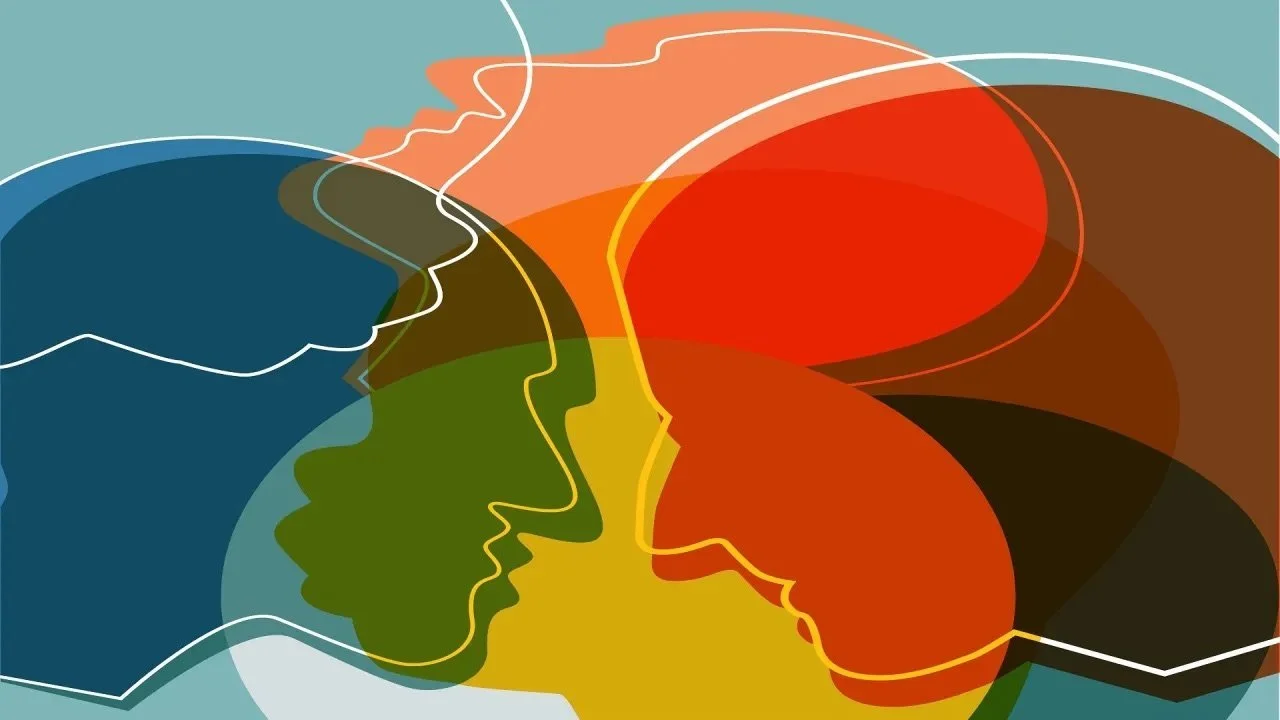Birch Psychology mental health Blog
Birch’s Blog
Dialogue with us
Resiliency is a Superpower
When certain, potentially traumatizing events occur between the ages of 0-17, the effect they can have on that individual's life is massive; these events are often referred to as adverse childhood experiences (ACEs). A prevalence of ACEs in someone’s childhood can lead to a number of different issues later in life, including physical health issues such as heart disease and diabetes; mental health issues such as being at a higher risk of suicide, depression and bipolar disorder, and other issues such as pregnancy complications, difficulty forming healthy relationships, and struggling to create a stable work history as an adult.
Being the Family Member of Someone With a Chronic Illness
Though I’ve gotten a lot better at it, I still sometimes have to catch myself when I find that I am judging someone at first glance. As a psychology major in college, part of why I love psychology so much is because I feel like in no other field do you really get the opportunity to look at other people and deep dive into what makes them unique. People, in my experience, often have a lot more going on in their lives than is outwardly apparent.
Transitioning into Spring
A number of weeks ago we covered seasonal affective disorder (SAD), often called seasonal depression. Often, when people think of seasonal depression, they think of winter, with its lack of hours of daylight and the cold keeping us inside. You might imagine that, regardless of whether or not someone has SAD, that spring is a time for growing as a person and “spring cleaning” your mind. Both of these can be true, however, it’s important to recognize the pressure that putting those expectations on yourself and others can lead to.
Who is the Person Sitting Next to You?
There is something inherently unique to each and every one of us: our identity. Or, is it our identities? The idea of intersectionality is one that has started to pick up more eyes and ears as time goes on, and is one that is such an inherently cool concept. Think about it: we all have different aspects of ourselves that we share with others, perhaps it is your gender or your age or your race. We all have multiple different identities as well, like being a 40-year-old woman, or a non-binary individual whose religious identity is important to them. Put these two facts together along with our own experiences, and we are our own unique and inimitable selves.
The Basics of EMDR
Eye Movement Desensitization and Reprocessing (EMDR) is a relatively new form of treatment, having only been developed in the last four decades. Originally, it was created for the treatment of posttraumatic stress disorder (PTSD), but can and is often used for other disorders and situations such as phobias, pain management, dissociative disorders, eating disorders, and even dermatological disorders.
Why Can’t I Get This Done?: ADHD and Self-Esteem
It often feels like, to me, that most people have heard of and have a general understanding of ADHD, but that they don’t necessarily know what ADHD is or what it is like to have. William Dodson, MD, a psychiatrist and author posits that children who have ADHD will, by the age of 12, “receive 20,000 more negative messages from parents, teachers, and other adults than their friends and siblings who do not have ADHD.” Being one of the most common mental disorders that affects children, one would think that we would have an easier and more effective time treating individuals with ADHD. This, however, as noted by William Dodson, is often far from the truth.
Group Therapy: You Don't Have To Go it Alone
What do you think of when you hear the word “therapy?” What kind of setting do you picture? Chances are high that you probably picture two individuals across from each other talking. While that can be what therapy looks like, it doesn’t always have to look like that. Group therapy can often provide certain benefits that you don’t get from individual therapy.
The Case of the Winter (and Summer) Blues
Spring is almost upon us here in the Northern Hemisphere, and with that means a few more sunny days and hours of sunlight, something that I’m sure a lot of us have been counting down the days for. You might have heard about seasonal depression, also sometimes referred to as the “winter blues,” but did you know that seasonal affective disorder (SAD) is something that is actually recognized in the Diagnostic Statistical Manual of Mental Disorders (DSM)?
Talking About Mental Health is Healthy!
As much as we hear that the stigma towards mental health is decreasing, it can still be really scary talking about your mental health, or even asking others about theirs. It was only until very recently that I felt nervous starting and having those conversations with the people I care about too, and sometimes, I still find myself struggling! It’s totally okay to find those kinds of conversations daunting.
Healthy Relationships Start with Healthy Boundaries
Setting boundaries can be hard. How are you supposed to know what they should be? How do you let someone know what your boundaries are? In what situations should you set boundaries? These are all questions that many, many people have had; they’re questions that I have had as well.
How Gender Can Sometimes Define Diagnoses
Mental illness does not always show up the same in biological men and women. In fact, this is why men and women often go years, if not their whole lives without receiving an accurate diagnosis. Historically speaking, much of the information that we have on diagnostic criteria is based on research conducted on Caucasian, cisgendered, and heterosexual biological males. With that in mind, it makes a lot of sense that the results of that research do not necessarily apply to everyone with a certain mental illness.
Sleep: Chicken Soup for the Brain
Here’s a fatiguing fact: roughly 3 out of 5 Americans said that they hardly ever wake up feeling rested. Considering sleep is so integral to a healthy functioning of our body and mind, that statistic is mind-boggling! During sleep, our brains conduct important tasks that influence our mind and body’s functioning the next day. Not getting enough sleep means your brain doesn’t have enough time to do what it does best, which can lead to a number of physical health issues such as increasing risk of common infections like the cold and flu, but also of things like heart disease, stroke, and obesity.
Validating Your Physical Experiences with Mental Illness
For many, the journey to getting help can start with a conversation with a counselor, a therapist, or a social worker. For others, it begins with a visit to a doctor. For some, the first thing one might notice about their mental illness is the physical symptoms they have. Headaches, upset stomachs, insomnia, fatigue, and even pain all could potentially be signs of mental illness.
A Mindful Start to the New Year
At times, everything can feel overwhelming. If you ever feel like you struggle to feel present in the moment or if you feel like you are constantly just rushing to be somewhere or do something, practicing mindfulness for even a few minutes can help to bring you back to awareness of the present. Beyond helping to manage stress, research suggests that mindfulness can even help reduce levels of anxiety and depression, alleviate pain, can aid in lessening symptoms of addiction, and can even be helpful in improving quality of life for individuals with cancer, hypertension, and other chronic illnesses. But what exactly is mindfulness?
What is Self Injury?
TW: Description of Self Injury
It comes in many forms, with cutting being the most prevalent. Cutting can be superficial but sometimes can cause bleeding, scars, and the need for medical treatment. Some people self-injure through hitting themselves, with or without an object, causing bruises or other injuries.
Don't Think Negatively
This article isn’t necessarily about thinking positively. Instead, it’s about the concept that our subconscious minds cannot process negative statements.
Sensory Processing Disorders
A sensory processing problem is often associated with Autism Spectrum Disorder or ADHD, however it can be much broader than that. Sensory processing is a term that refers to a person’s nervous system receiving and interpreting information that is received by the senses and translating it into appropriate motor and behavioral responses.
Holiday Stress!
“Tis the Season to be Jolly,” but for some people, it’s a season for stress.
The hustle and bustle of the holiday season can add an additional layer of stress to an already overworked, overscheduled, overtired person. On top of grocery shopping and meal planning, people are expected to shop for presents for family and friends and plan extravagant holiday meals.
How to "Handle" the Holidays
We have a lot of people in our lives who care about us and who we care for in return. The only downside that can occur is that sometimes, we run out of time and energy to give to all of them. So, we give all that we have and don’t save any for ourselves, causing emotional anxiety, sadness, and other concerns. How do we do the best for ourselves and others in a losing situation?





















